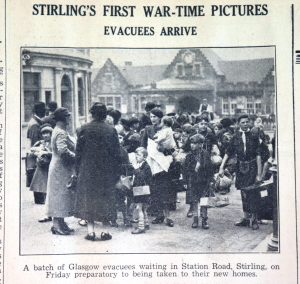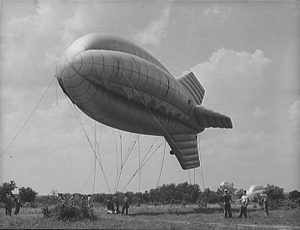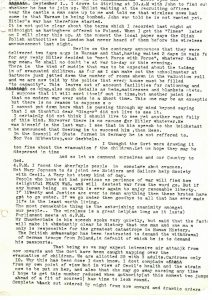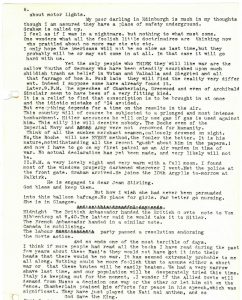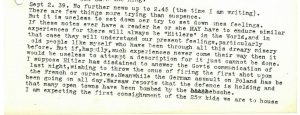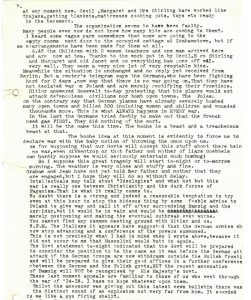The countdown to war began in earnest on the 1st of September when the Nazi Luftwaffe began bombing raids on Warsaw, and again, over these two days, Thomas comes back repeatedly throughout the day to record developments. Thomas here gives a clear account of the actions taken by various countries with regard to the situation in Poland.
There is an update relating to the evacuation of city children to the country. Thomas and his family had agreed to accommodate some evacuees at Rednock and on the 1st of September, he was notified as to how many were allocated to the house, 25 children and 3 adults. The preparatory work done by Thomas’ daughter Cecil and his staff is described and the arrival of the children on the 2nd September. Thomas describes them as ‘a very nice lot of very respectable kids’.
Thomas notes that orders had been issued for complete black-out on all windows at night. Achieving this must have been a lot of work for a large house such as Rednock.
Thomas mentions the United States, hoping that they will enter the war early on, unlike the situation in the First World War where they did not take a part until 1917. His view is that if they decide not to enter into the conflict that ‘it will go hard with us’. Indeed, this proved to be the case in the early part of the war when Britain did feel very isolated, a period that Winston Churchill described as ‘our darkest hour’.
Thomas refers to the fact that his son’s fiancé, Jean Stirling, is working with the’ balloon barrage’. This refers to the British Balloon Command, responsible for launching and maintaining the barrage balloons that were employed in an attempt to protect areas from aerial bombardment. He does not see this as a suitable job for a woman, thinking that she would have been better volunteering for nursing like his own daughter Cecil.
